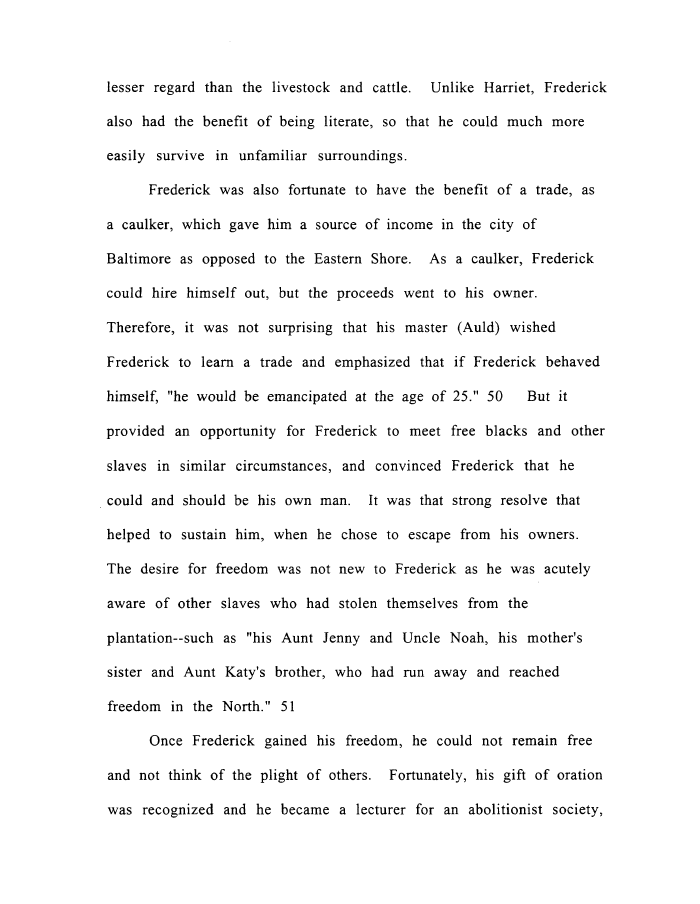 |
||||
|
TASK FORCE TO STUDY THE HISTORY AND LEGACY OF SLAVERY IN MARYLAND (Final Report) 1999/12/31 MdHR 991422 MdHR 991422, Image No: 329 Print image (42K) |
 |
||||
|
TASK FORCE TO STUDY THE HISTORY AND LEGACY OF SLAVERY IN MARYLAND (Final Report) 1999/12/31 MdHR 991422 MdHR 991422, Image No: 329 Print image (42K) |
| lesser regard than the livestock and cattle. Unlike Harriet, Frederick also had the benefit of being literate, so that he could much more easily survive in unfamiliar surroundings. Frederick was also fortunate to have the benefit of a trade, as a caulker, which gave him a source of income in the city of Baltimore as opposed to the Eastern Shore. As a caulker, Frederick could hire himself out, but the proceeds went to his owner. Therefore, it was not surprising that his master (Auld) wished Frederick to learn a trade and emphasized that if Frederick behaved himself, "he would be emancipated at the age of 25." 50 But it provided an opportunity for Frederick to meet free blacks and other slaves in similar circumstances, and convinced Frederick that he could and should be his own man. It was that strong resolve that helped to sustain him, when he chose to escape from his owners. The desire for freedom was not new to Frederick as he was acutely aware of other slaves who had stolen themselves from the plantation—such as "his Aunt Jenny and Uncle Noah, his mother's sister and Aunt Katy's brother, who had run away and reached freedom in the North." 51 Once Frederick gained his freedom, he could not remain free and not think of the plight of others. Fortunately, his gift of oration was recognized and he became a lecturer for an abolitionist society, |